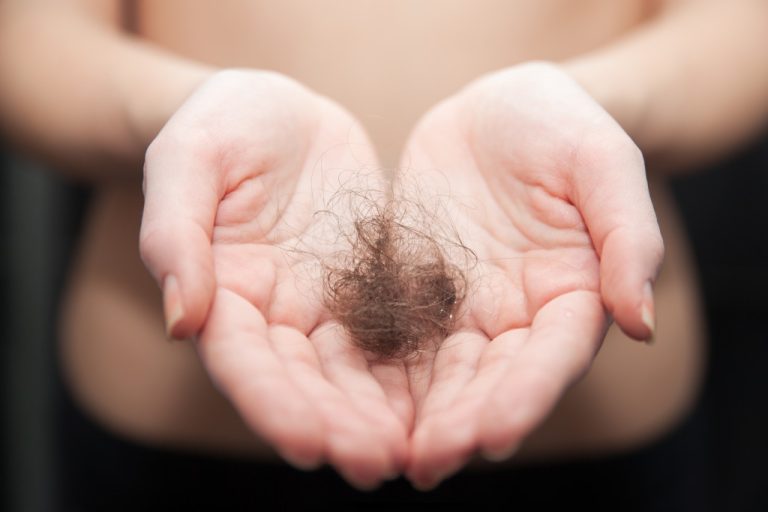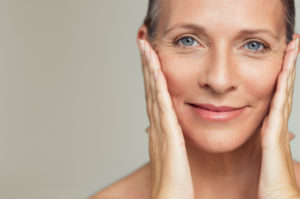
- Human hair is composed of three layers, each serving a unique function in hair health and appearance.
- Hair products and hygiene practices can adversely impact skin health, leading to irritation, acne, and infections.
- Physical damage from tight hairstyles or chemical treatments can cause hair loss and skin issues.
- Cross-contamination from hair care tools can introduce bacteria to the skin, causing acne breakouts and infections.
- Maintaining hair healthy for the skin involves using natural products, regular washing, appropriate moisturizing, and avoiding damaging hairstyles.
Your hair can contribute to different skin problems. Having healthy hair is important in maintaining healthy skin. It is essential to prevent hair products from coming into contact with our skin, avoid tight hairstyles, and keep our hair and scalp clean. Here’s what you need to know about human hair, ways your hair can affect your skin, and ways you can take care of your hair to promote healthy skin.
Understanding Human Hair
It’s important first to understand what human hair is made up of. On average, each person has around 100,000 to 150,000 strands of hair on their head. Each strand is made up of three main layers: the medulla (innermost layer), cortex (middle layer), and cuticle (outermost layer). The medulla is responsible for giving hair its strength, while the cortex determines the color and texture of our hair. The cuticle serves as a protective barrier for the inner layers and also plays a role in maintaining moisture levels in our hair.
How Your Hair Can Affect Your Skin
There are various ways your hair can affect your skin. Here are some of those ways:

1. Hair Products
Hair products can have many harmful ingredients that cause skin allergies, irritation, and eczema. Putting oils, styling gel, hairspray, or other hair products on the scalp or hairline can cause acne breakouts or cause the skin to become inflamed. Make sure to read the ingredient label before trying out any hair products. Some ingredients to avoid include alcohol, fragrances, sulfates, and parabens.
2. Dirty Hair and Scalp
Not washing your hair regularly can cause dirt and sweat to accumulate on your scalp, causing dandruff, seborrheic dermatitis, or other fungal infections. Sweat and dirt can also cause an acne breakout on the forehead and hairline. To avoid these skin problems, wash your hair at least twice a week and avoid using hot water that can strip off natural oils.
3. Tight Hairstyles
Wearing tight hairstyles like ponytails, braids, or buns can cause traction alopecia, where hair falls out due to constant pulling or tension. Tight hairstyles can also cause headaches and inflamed hair follicles, leading to itching, pimples, and redness.
4. Bleaching and Coloring Hair
Bleaching and coloring hair can cause severe scalp irritation, breakage, and inflammation. Bleach contains ammonia and peroxide, which can cause skin allergies. Coloring your hair can also cause dryness and itching, leading to dandruff and hair loss.
5. Cross-Contamination
Cross-contamination occurs when hair products come into contact with the skin. Using the same towel or comb infected with bacteria can transfer it to your skin, causing acne breakouts and other skin infections.
Ways to Take Care of Your Hair for Healthy Skin
Now that you understand how your hair can affect your skin, here are some ways to take care of your hair for healthy skin:
1. Use Natural and Gentle Products
Use natural and gentle hair products that don’t contain harsh chemicals. Look for coconut oil, shea butter, and aloe vera that nourish the scalp and promote healthy hair growth.
2. Wash Your Hair Regularly
Wash your hair at least twice weekly with lukewarm water to remove dirt, sweat, and product buildup. Avoid using hot water as it can strip off natural oils from the scalp.

3. Remove Hair
In some situations, it might be best to remove hair entirely. If you want an effective and long-lasting solution, consider a laser hair removal service. This method removes the hair at its root and can prevent future growth, giving your skin a smoother and cleaner appearance.
4. Moisturize Your Scalp
Just like our skin, our scalp also needs moisture to stay healthy. Use natural oils or a leave-in conditioner to moisturize your scalp, especially after washing your hair.
5. Avoid Tight Hairstyles
Avoid tight hairstyles that pull on your scalp and cause tension. Opt for looser styles instead to avoid traction alopecia and other scalp problems.
Taking care of your hair is crucial in maintaining healthy skin. By understanding how different factors can affect your hair and skin, you can make informed decisions regarding your haircare routine. Remember always to prioritize using gentle and natural products and regularly washing and moisturizing your scalp for healthy, glowing skin. So, next time you’re reaching for that new bottle of hairspray or contemplating a drastic hair color change, think about how it could potentially affect your skin before making any decisions.













